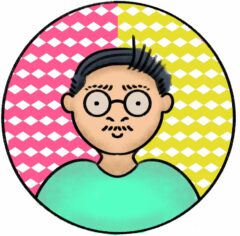In his work Thich Nhat Hanh always speaks of the teacher as a healer. Like Freire, his approach to knowledge called on students to be active participants, to link awareness with practice. Whereas Freire was primarily concerned with the mind, Thich Nhat Hanh offered a way of thinking about pedagogy which emphasized wholeness, a union of mind, body, and spirit. His focus on a holistic approach to learning and spiritual practice enabled me to overcome years of socialization that had taught me to believe a classroom was diminished if students and professors regarded one another as ”whole” human.
(hooks, 1994, p. 14).
I believe bell hooks, via this quote, posits that students are not merely proto-humans who need a dominant figure (teacher) to structure, shape, order and form their minds and spirits. However, rather, students are whole and human as they are, containing multitudes, struggles, hopes, dreams, beliefs and fears. Borrowing from the works of Thich Nhat Hanh’s holistic/spiritual approach and Paulo Freire’s social reconstructivist ideals, hooks advocates for a pedagogy that supports the mind, body and spirit of the student and teacher. Education, through hooks’ lens, is not simply an intellectual, passive experience but rather a transformative praxis that nurtures the whole of the student and the teacher.
In my personal philosophy, I struggle to extricate education and politics (education is part of the standards of the body politic) and in that way, I view the classroom as a medium for social change and creates room for equitable transactions between students, teachers and the broader community at large. Neoliberalist schools of thought, which proclaim all individuals as equal, often overlook the nuance of lived experience—students’ backgrounds, identities, and socio-economic realities. Education, however, has the potential to challenge inequities by creating spaces where marginalized voices are heard, valued, and empowered.
Education, thus, must support the well-being of the whole child and acknowledge and validate their lived experience – and all that encompasses – in order to support the individual, the classroom, the school and the community. Inspired by hooks, I strive for a relational, reciprocal and empathetic pedagogy, where learning is co-created through dialogue, vulnerability, and mutual respect. Ultimately, I see education as a means of both personal and collective liberation, nurturing wellness, compassion and socially aware individuals and communities.

